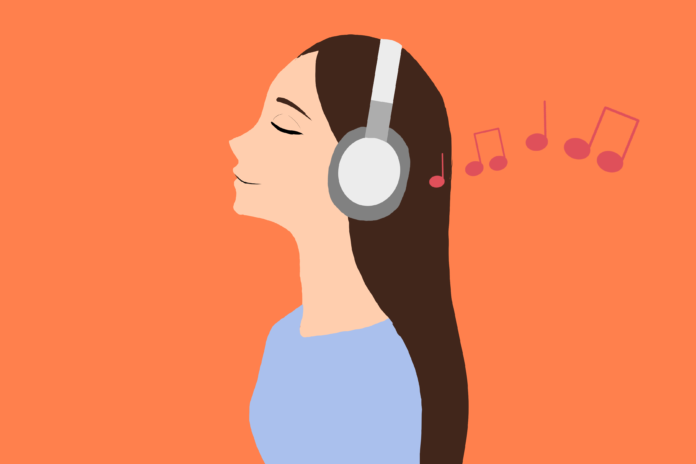In this time of turmoil, music is here for us
The Internet has become an unlikely hero in all of our lives. Something that we took for granted every day (I see you, mindless TikTok scrollers) is now our lifeline. I attend my Zoom lectures in the dining room across from my mother’s daily work Zoom meetings. I feel bad for my computer nowadays — it never gets a break.
I haven’t been outside in six days. These last few weeks I’d be more into exercising and trying to have my daily break from the indoors, but Los Angeles is rainy, and the rain slows down my world even more than it already has. As much as I loathe the outdoors and all forms of exercise, it felt good to just breathe in the fresh air.
It feels trivial to write about anything besides the giant, infectious elephant in the room, but one thing that has remained a constant throughout this entire ordeal is my love of music. This love began early and swiftly. I was pulled out of preschool to go to piano lessons and missed many AP environmental lectures to go to orchestra tours. These experiences solidified my love of music and the music community.
Our ability to experience these physical joys, whether it be concerts or rehearsals, have been decimated by the coronavirus. I cherished these experiences not just for the ability to play and enjoy music, but also for the way it brought people together.
So what now? The way that we live has significantly changed, but, fortunately, music — apart from concert cancellations — remains largely unaltered. In a world that has yet to let the dust settle, music is our most valuable constant.
Movie productions have largely shut down, Broadway is closed until June, the social media world is running on quarantine jokes and selfies and the news has been overtaken by coronavirus updates. But music transcends all of the issues that coronavirus presents.
The industry’s move toward digitization in the past decade has proven fruitful in these times, making it the most important part of our culture when it feels as if there is little left to do or enjoy. This digital revolution, however, didn’t happen overnight.
Music streams are the most prominent example of the digitized music world. In 2019, 80% of the industry’s revenue came from streams, according to the Recording Industry Association of America (RIAA). Streaming services like Spotify, with 26 million users, and Apple Music, with 28 million users, are competing for popularity — a contest that couldn’t have been imagined two decades ago.
The privilege of having music on-demand is something that we take for granted in our day-to-day, but now we cling to these aspects of our lives to provide us with entertainment.
The ability of musicians to play for crowds has undoubtedly been affected by this crisis, but artists have been overcoming such obstacles for some time now. With the music community at our fingertips, artists have long been able to create music and build their discographies without the help of major labels.
Take Brockhampton, for example. Self-dubbed “the world’s greatest boy band,” the hip-hop collective met on an online forum for Kanye West fans. Kevin Abstract, the group’s leader, posted an innocuous message about starting a band on the forum, and a smattering of people responded.
Billie Eilish gained Internet notoriety through her “Ocean Eyes” recording on Soundcloud. She now dominates the music industry with five Grammy awards at the age of 18.
The fact that these artists have become powerhouses of the industry is an excellent showing of how the Internet can be utilized to propagate future leaders in the music world.
Now, with the help of the Internet, musicians are able to reach audiences they didn’t have before the virus struck. The classical music community, which thrives off live concerts, experienced a crisis with major cancellations. This issue was met with an outpouring of ensembles like the Met Opera and Berlin Philharmonic advertising free concert streaming.
A music purist could argue that this just isn’t “the same,” and they would be correct — it isn’t the same. The digitization of the music world has made it easier for more parties to access, and the lack of activity nowadays prompts cooped up people to try new hobbies. It’s a totally different industry than what it used to be.
I’m thankful for this. The Internet has provided us with connections to music in a time when we need it most. Without new people becoming interested in exploring genres and expanding their tastes, the community would die. It thrives off diverse ideas.
That said, I hope that we’re taking our time indoors in stride. As difficult as it is, there are so many upsides to having this much time. I encourage you to all channel your inner Chandler Bing: Lie down on a chair, close your eyes and listen to your favorite album.
Written by: Isabella Chuecos — ifchuecos@ucdavis.edu
Disclaimer: The views and opinions expressed by individual columnists belong to the columnists alone and do not necessarily indicate the views and opinions held by The California Aggie




